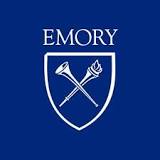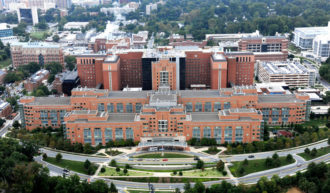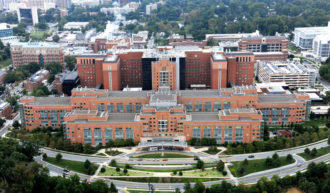Two faculty members have left Emory after failing to disclose foreign sources of research funding and their work with institutions and universities in China, the university said Thursday.
Emory did not identify the two scientists nor the circumstances surrounding their departure.

But the Emory situation arises amid concerns by the National Institutes of Health and other federal agencies about foreign influence on research done in the United States. The NIH is the primary U.S. government agency responsible for biomedical and public health research.
Emory said it conducted an internal investigation about the two faculty members after the NIH sent a letter to many academic research universities about threats to the integrity of U.S. biomedical research.
The Atlanta university receives hundreds of millions of dollars in NIH grant funding annually. The two scientists are U.S. citizens of Chinese origin, according to an official who requested anonymity.
Federal officials have increasingly warned of foreign exploitation, especially by the Chinese, of American-backed research, the New York Times reported recently.
The Emory situation follows a similar case involving the renowned cancer hospital MD Anderson, based in Houston.

The Texas cancer center ousted three tenured scientists in connection with concerns that China was trying to steal U.S. scientific research, the Houston Chronicle reported last month.
The cancer center said it did not have information about any of the scientists’ nationalities. But in redacted investigative reports, the center referred to ties to China or Chinese residents or institutions in all three cases, the Times reported.
The NIH Office of Extramural Research declined to comment on queries specific to the Emory departures.
But the office, in a statement to GHN, on Thursday said the agency is concerned about the failure by some researchers at NIH-funded institutions to disclose substantial contributions of resources from other organizations, including foreign governments, “which threatens to distort decisions about the appropriate use of NIH funds.’’
Other agency concerns include “the diversion of intellectual property in grant applications or produced by NIH-supported biomedical research to other entities, including other countries.’’ Another area targeted involves “sharing of confidential information by peer reviewers with others, including in some instances with foreign entities, or otherwise attempting to influence funding decisions.’’

The NIH referred 12 allegations relating to foreign influence over U.S.-funded research to a federal oversight office, Sen. Charles Grassley (R-Iowa) said in February.
Grassley, the chairman of the Senate Finance Committee, has repeatedly demanded information from the NIH after the agency revealed in August it was investigating a half-dozen academic institutions — specifically about researchers who may have failed to disclose financial ties to foreign governments, STAT reported.
Emory said in a statement Thursday that it “remains committed to the free exchange of ideas and research and to our vital collaborations with researchers from around the world. At the same time, Emory also takes very seriously its obligation to be a good steward of federal research dollars and to ensure compliance with all funding disclosure and other requirements.’’
The NIH office said in its statement that “importantly, individuals that are being reviewed are not all of Chinese ethnicity. However, China’s Thousand Talents Program is a known prominent player.’’
That program is designed to lure global experts from Western universities and companies, according to the Times.

Federal officials said they found some researchers had shared with Beijing intellectual property and pilfered confidential information from grant applications. Other researchers had failed to disclose that they were receiving money from foreign sources while being funded by the NIH, the Times reported.
Federal officials have said that some scientists have run “shadow laboratories” in China while conducting NIH-funded research in the United States. The NIH said 55 institutions across the country are investigating such concerns. Emory is among those institutions.
The investigations began after Dr. Francis S. Collins, director of the National Institutes of Health, sent a letter in August to more than 10,000 institutions that the agency funds, warning of “threats to the integrity of U.S. biomedical research.”
“The challenge is to find ways to build and continue important and successful relationships with foreign scientists around the world while simultaneously protecting the nation’s biomedical innovations and intellectual property,’’ the NIH statement said Thursday. “NIH also is working with other federal agencies, scientific professional societies, and grantee institutions to address this challenge.’’
Leadership at the agency is “sensitive to the concerns expressed by Chinese researchers and stated their commitment to avoiding overreaction, stigmatization, harassment, and profiling,’’ the statement added.

